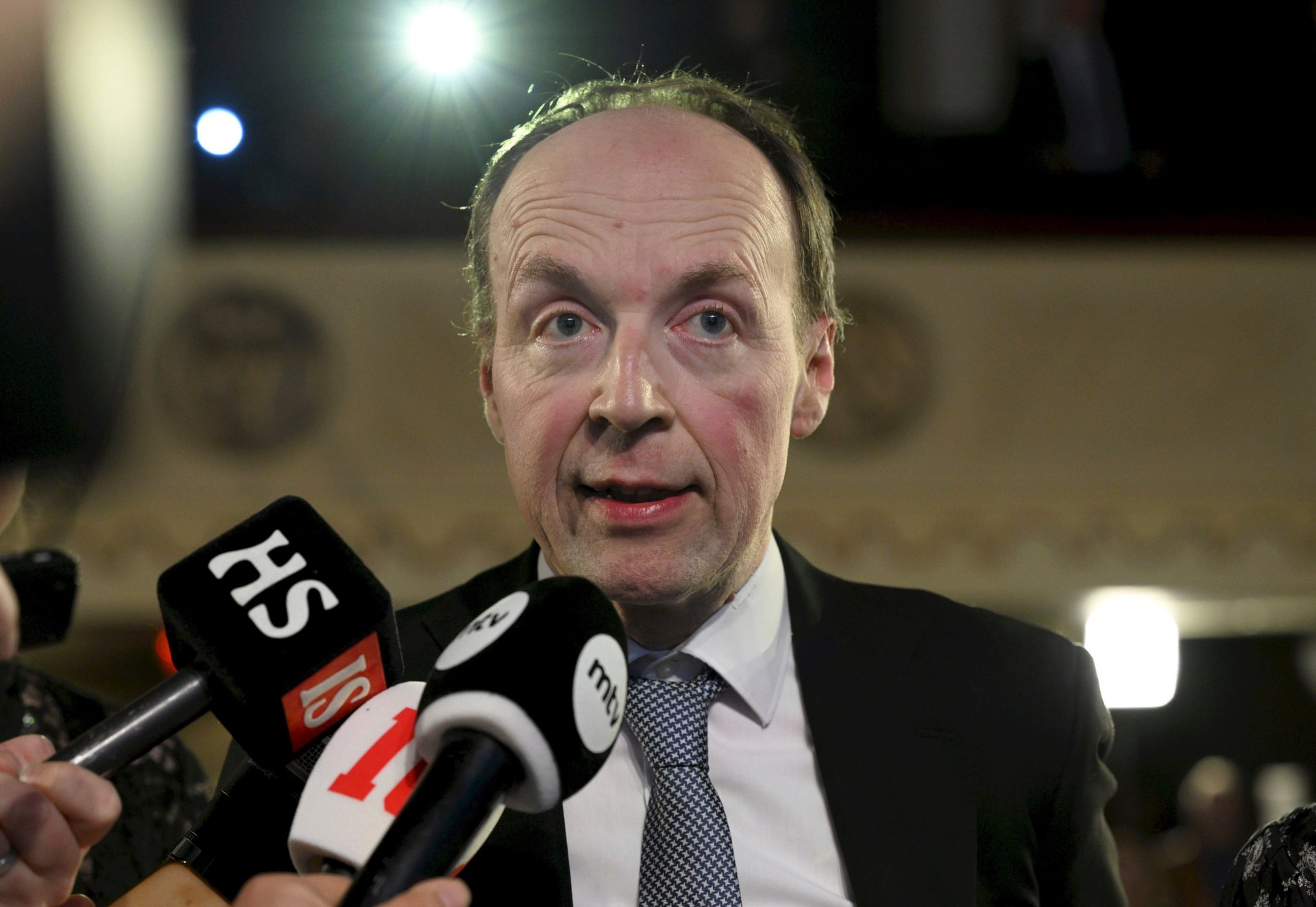Ex-Prime Minister Alexander Stubb wins first round of Finland's presidential vote to set up a runoff
Former Prime Minister Alexander Stubb has won the first round of Finland’s presidential election and will face runner-up ex-Foreign Minister Pekka Haavisto in a runoff next month

HELSINKI (AP) — Former Prime Minister Alexander Stubb won the first round of Finland's presidential election Sunday and will face runner-up ex-Foreign Minister Pekka Haavisto in a runoff next month.
Suggested Reading
The vote largely centered on the Nordic nation's new role as a NATO front-line country with Russia, and the security situation in Europe, particularly Russia's assault on Ukraine.
Related Content
With all the votes counted, Stubb led the first round with 27.2% of the votes, while Haavisto, Finland's top diplomat in 2019-2023, took second place with 25.8%. Parliamentary Speaker Jussi Halla-aho came in third with 19%, followed by Bank of Finland governor Olli Rehn with 15.3%.
The first-round election result will be officially confirmed Tuesday. The result will push the race into a runoff on Feb. 11 between Stubb and Haavisto, because none of the candidates received more than half of the votes.
“Getting such a result together with the team is heartwarming. I am grateful and humbled by it,” Stubb told his supporters in an election party at a Helsinki restaurant, adding that he wasn't planning major changes in his campaign for the second round of voting.
Stubb, 55, and Haavisto, 65, were the main contenders in the election. About 4.5 million eligible voters picked a successor out of nine candidates to replace hugely popular President Sauli Niinistö, whose second six-year term expires in March. He wasn’t eligible for reelection.
Initial voter turnout was 74.9%.
Stubb represents the conservative National Coalition Party and headed the Finnish government in 2014-2015 and earlier held other key Cabinet posts, while veteran politician Haavisto, an ex-U.N. diplomat and Green League member, is running for the post for the third time as an independent candidate.
Unlike in most European countries, the president of Finland holds executive power in formulating foreign and security policy, particularly when dealing with countries outside the European Union like the United States, Russia and China.
The president also acts as the supreme commander of the Finnish military, a particularly important duty in Europe’s current security environment.
The main themes of the election were foreign and security policy issues like Finland’s recent membership in NATO, future policies toward Russia, enhancing security cooperation with the United States and the need to continue helping Ukraine with both military and humanitarian assistance.
Finland’s new head of state will start a six-year term in March in a markedly different geopolitical and security situation in Europe than did incumbent Niinistö after the 2018 election.
Abandoning decades of military nonalignment in the wake of Russia's invasion of Ukraine, Finland became NATO’s 31st member in April, much to the annoyance of President Vladimir Putin of Russia, which has a 1,340-kilometer (832-mile) border with the Nordic nation.
NATO membership, which has made Finland the Western military alliance’s front-line country toward Russia, and the war raging in Ukraine a mere 1,000 kilometers (600 miles) away from Finland’s border have boosted the president’s status as a security policy leader.
As a rule, the president represents Finland at NATO summits.
As foreign minister, Haavisto signed Finland’s historic accession treaty to NATO last year and played a key role in the membership process along with Niinistö and former Prime Minister Sanna Marin.
Finland's western neighbor Sweden is set to join NATO in the near future as the final holdout, Hungary, is expected to ratify Stockholm's bid by the end of February.